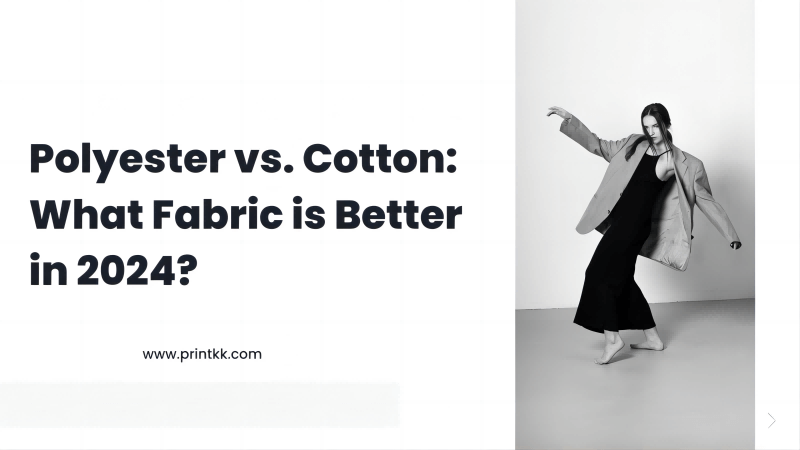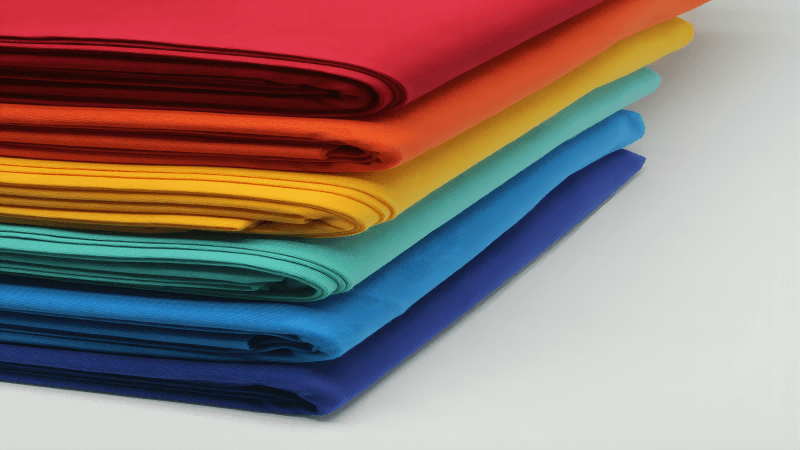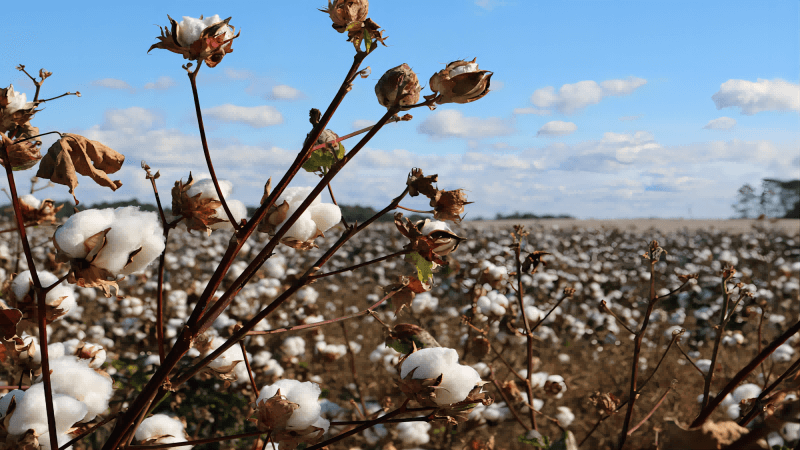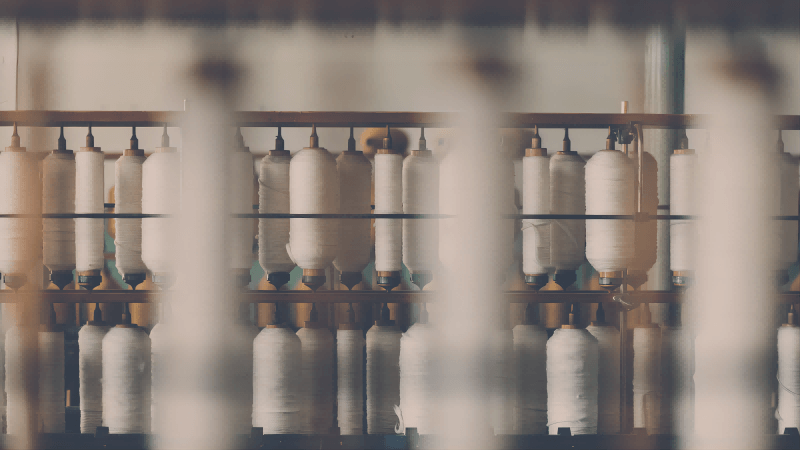
Choosing between polyester and cotton in 2025 is more complex than ever, with sustainability and technology evolving rapidly. While polyester boasts unparalleled durability and technological advances, cotton offers unmatched comfort and eco-friendliness, leaving consumers torn.
This blog post dives into the heart of this dilemma, comparing the environmental impacts, comfort levels, and practical uses of both fabrics, offering clear insights to help you make an informed choice that aligns with your values and lifestyle needs.
What Is Polyester?
Polyester is a powerhouse in the world of fabrics, especially for those venturing into the print-on-demand business.This synthetic material, known for its durability and versatility, is crafted from petrochemical products, resulting in a fabric that withstands wear and tear while maintaining its color and structure.
This feature, combined with polyester's cost-effectiveness and low maintenance, offers significant advantages for entrepreneurs and businesses seeking to maximize their product appeal while maintaining efficiency in production and fulfillment processes.
Its creation marked a significant advancement in fabric technology, providing a strong, flexible, and lightweight option for a wide array of applications.

Pros and Cons of Polyester
In the dynamic world of print-on-demand, choosing the right fabric is crucial for success. Polyester, known for its durability, offers significant advantages. It's resistant to wrinkles and shrinking, making it ideal for items that need to maintain their shape and appearance over time.
However, polyester does have its drawbacks. It's less breathable than natural fibers, which can be a consideration for apparel intended for hot climates or active wear. Additionally, its environmental impact is a concern for eco-conscious brands and consumers, given its slower degradation rate compared to organic materials.
Despite these considerations, polyester's cost-effectiveness and print fidelity position it as a compelling option for a wide spectrum of print-on-demand ventures, balancing practicality with performance.
What Is Cotton?
Cotton, a natural fiber, has been a staple in the fabric world for centuries, known for its versatility and comfort. It's derived from the fluffy fibers surrounding the seeds of cotton plants, which are spun into yarns that create a breathable, soft, and highly absorbent material.
Its superpower lies in its absorbency and hypoallergenic nature, making it a go-to for those with sensitive skin or anyone seeking comfort in their fabric choices. Plus, its durability and easy maintenance mean cotton products stand the test of time.
As we step into 2025, cotton remains a trusted and versatile material, aligning with the values of entrepreneurs, designers, and brands aiming to make a positive impact on the planet and their customers.

Pros and Cons of Cotton
In 2025, cotton remains a beloved choice for its comfort and sustainability. Its soft, breathable nature makes it perfect for everything from casual wear to luxury bedding, ensuring users stay cool and comfortable.
Its eco-friendly attributes, being biodegradable and sourced from renewable resources, resonate well with the growing demand for sustainable products.
However, cotton is not without its downsides. It can shrink and wrinkle more easily than synthetic fabrics, requiring a bit more care during laundry.
Despite these drawbacks, cotton's benefits of comfort and environmental friendliness keep it in high regard among entrepreneurs and designers looking to meet consumer demands for quality and sustainability.
Differences Between Polyester and Cotton
As we step into 2025, the comparison between polyester and cotton fabrics remains a hot topic for entrepreneurs and creators alike.
Polyester, known for its durability and resistance to wrinkles and shrinking, remains a favorite for those seeking long-lasting wear and low maintenance. It's particularly suited for active and outdoor apparel, thanks to its quick-drying properties.
cotton, a natural fiber, stands out for its breathability and softness, offering unbeatable comfort for everyday wear. It's also preferred for its eco-friendly attributes, being biodegradable and sourced from renewable resources.
Whether you're an entrepreneur crafting a new clothing line, a designer focusing on seasonal collections, or a brand keen on sustainability, understanding these differences can guide your fabric choices, ensuring your products resonate well with your diverse audience's needs and preferences.
Polyester vs. Cotton in Different Seasons
When choosing between polyester and cotton for your print-on-demand projects, considering the seasonal adaptability of each fabric is crucial.By aligning your fabric choices with the seasons, you ensure that your products not only look great but also meet the practical needs of your customers year-round.
Polyester vs. Cotton in Summer
In the summer months, cotton shines as a go-to fabric due to its natural breathability and ability to wick moisture away from the body, keeping wearers cool and comfortable in hot conditions.Its softness and hypoallergenic properties make it a summer wardrobe staple, ideal for those sunny outdoor events and casual, airy designs.
Polyester, with its durability and resistance to wrinkling and shrinking, offers vibrant prints and bold colors that last through many washes.However, it's less breathable than cotton, which can lead to discomfort during the peak of summer heat.
Striking the right balance between comfort, style, and functionality with these fabric choices can significantly impact your product offerings, catering to the diverse needs of your clientele from entrepreneurs to dropshippers.
Polyester vs. Cotton in Winter
In the heart of winter, when the cold air bites and the snow falls softly, the fabric of our clothes becomes not just a choice but a necessity. For the print-on-demand community, the perennial debate of polyester versus cotton takes on a seasonal twist.
Polyester, with its synthetic fibers, stands as a bastion of warmth, trapping heat efficiently and providing a durable barrier against the winter elements. Its quick-drying nature and resistance to moisture make it a practical choice for those frosty mornings and snowy afternoons.
Cotton, while cherished for its softness and natural breathability, may falter in the face of winter's demands, struggling to provide the same level of warmth without layering.
For print-on-demand businesses, choosing polyester for your winter line means your products are not only stylish but also practical, catering to the seasonal needs of a diverse clientele. This thoughtful selection ensures your offerings stand out, providing value and satisfaction during the colder months.
Which Is Better: Polyester or Cotton?
In the dynamic print-on-demand landscape of 2025, the polyester vs. cotton debate continues to spark interest among entrepreneurs and designers alike.Choosing the right fabric is pivotal in aligning with your brand ethos and meeting consumer expectations.
Polyester, a synthetic fabric, boasts remarkable durability and resilience, making it a favorite for items that require longevity and ease of care. Its quick-drying properties and ability to retain vibrant colors over time make it an excellent choice for outdoor apparel, activewear, and accessories that endure frequent use. Additionally, polyester's resistance to shrinking and wrinkling ensures products remain in pristine condition, enhancing customer satisfaction.
On the other hand, cotton, a natural fiber, is celebrated for its softness, breathability, and comfort. Its hypoallergenic qualities and gentle touch on the skin make it a staple for everyday wear, particularly in items like t-shirts, casual wear, and bedding. Cotton's eco-friendly appeal, being biodegradable and sourced from renewable resources, resonates with environmentally conscious consumers and brands aiming for sustainability.
So, which is better? The decision largely depends on the specific requirements of your target market and the essence of your brand. Polyester excels in performance and durability, making it ideal for sports and outdoor apparel. Cotton, with its natural comfort and sustainability, is perfect for casual and eco-focused lines. Understanding your audience's preferences and values is key to making the right choice.

Conclusion
In summing up the polyester vs. cotton debate for 2025, it's evident there's no one-size-fits-all answer. Polyester offers unmatched durability and vividness for those seeking longevity and vibrant designs, making it a hit for active and outdoor apparel. Cotton, prized for its softness and eco-friendly profile, continues to win hearts in the realm of casual and sustainable fashion.
The key lies in understanding your target audience's preferences and aligning them with your brand's values.Whether it's the performance and resilience of polyester or the natural comfort and sustainability of cotton that resonates with your customers, choosing the right fabric will set your print-on-demand offerings apart. Embrace the unique benefits of each to cater to a diverse market, ensuring your products remain relevant and cherished in the competitive landscape of 2025.
FAQs
Is 100% polyester warmer than cotton?
Yes, 100% polyester does tend to be warmer than cotton. Its synthetic fibers are engineered to retain heat, offering enhanced warmth in cooler conditions. Ideal for those prioritizing thermal comfort.
Is cotton or polyester better for summer?
For summer, cotton outshines polyester. Its breathability and natural fibers keep you cool and comfortable in hot weather. Ideal for those seeking relief from the summer heat.
Is polyester good for hot weather?
In hot weather, polyester's moisture-wicking properties can keep you dry, but it may not offer the same breathability as natural fibers like cotton.










 Global Shipping
Global Shipping


 Made in USA
Made in USA



























